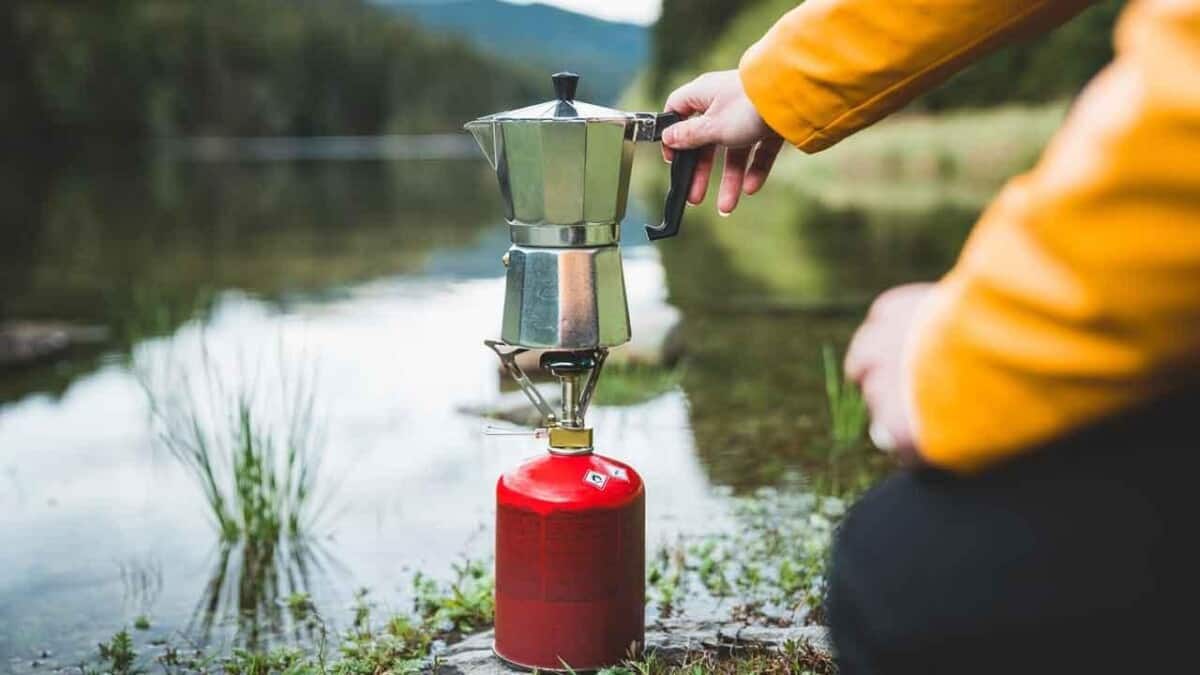Are you planning to get away for a family camping trip this summer? Outdoor lovers from everywhere look forward to camping when it starts warming up, but planning such a trip can be challenging. It would help if you essentially packed anything and everything you’ll need during your time away.
If you’re one of the millions of campers who use a camp stove to prepare your meals, you may be wondering how much propane you’ll need to bring with you.
The amount of propane you need to bring on your camping trip depends on several factors. For example, the duration of your camping trip, the number of people you’ll be feeding, how many meals you plan to cook, and the specifications of your camp stove are all things to consider when deciding how much propane will be necessary.
In this article, we’ll tell you how to calculate how much fuel you’ll need for your camping trip and will offer some other tips and tricks to make sure you’re getting the most out of your camping stove and propane.
Cooking outdoors and away from the comfort of your kitchen can be intimidating. But, who says you can’t bring your kitchen to the wilderness? Check out this article about our top recommendations for the best camping cookware for all budget and sizes.
A Quick Estimation of How Much Propane You’ll Need
According to the REI co-op
Your estimation would look like this:
4 people * 1 liter = 4 liters
4 meals * 4 liters = 16 liters
You will plan on boiling 16 liters for the trip.
Consulting Your Stove Specifications
Once you’ve figured out approximately how much water you’ll need to boil, you’ll need to take a look at your stove specs. You can find your stove’s specs in the manufacturer’s pamphlet that came with your camp stove. Here are a couple of things you should note:
- Boil time tells how long a specified amount of water will take to boil.
- Burn time indicates how long a stove can run on a specified amount of fuel.
If you have an older camp stove and have lost the instructions, you can do a quick test independently. For that, use the camp stove you will be bringing on your trip, along with a fuel canister, and follow the steps mentioned below:
- Make sure to weigh the canister before the trip, so you know what the weight is going in.
- Measure your water. For our hypothetical test, we will use 1 liter of water.
- Using a timer, time how long it takes your water to boil (in our hypothetical test, it took 4 minutes, 24 seconds to start seeing rolling bubbles).
- After noting the time, you will need to weigh your fuel canister again.
- In our hypothetical test, our fuel canister now weighs 15.9 ounces (450 grams), meaning we’ve burned through .5 ounces to boil 1 liter of water.
- Since we know we need 1 liter of water per family member per meal, we’ll multiply .5 ounces by 4 family members = 2 ounces of fuel per meal.
- Two ounces * 4 meals = 8 ounces of propane for our weekend trip.
Other Factors to Consider
Unfortunately, all the planning in the world doesn’t mean your calculation will be perfect. Several other factors could come into play, and you should always plan to bring extra fuel just in case. After all, you don’t want to run out of propane on the last morning, before you’ve had your cup of coffee.
Factors such as the wind, air temperature, elevation, and the type of food you’ll be preparing are to be considered when deciding how much propane to bring along on your trip.
Cooking in windy or cold weather could impact your food preparation and stove performance. Similarly, if you’re collecting water to boil, it will take much longer to boil cold water from the environment than water at room temperature.
If your trip takes place at a higher elevation, your cooking time could also be affected considering water boils faster at higher elevations due to a drop in atmospheric pressure.
In addition, if you’re planning on simmering or preparing food with longer boiling times, such as rice or pasta, you’ll need to factor in that extra time. Dehydrated foods will have much shorter prep times than more elaborate meals, for instance.
Experts advise that you take twice as much fuel as you would in ideal conditions (Rei.com
If you want you camping cookware to last, you will need to take care of them properly. Each kind of cookware requires a specific cleaning method that will clean and preserve the equipment at the same time. Read our article to learn how to clean your camping cookware properly.
How to Make Your Propane Last
Luckily, expert campers and backpackers provided us with a few tips that will help you get the most out of your camp stove’s performance and make your propane last longer. To do so, you may:
- Prepare. Make sure you have all your cooking utensils and food ready before cooking, so you’ll get the most out of your cooking time.
- Cover your pot. Minimizing evaporation will help water boil faster, thus increasing the efficiency of your fuel.
- Don’t run your stove at full power. Instead, run it slightly below the total output, ensuring that all the heat goes into your heating your food and not out into the environment.
- Use a campfire whenever possible. Making a fire for cooking or heating water is a great way to save your propane if the area allows it.
Frequently Asked Questions About Propane and Camp Stoves
Does propane expire?
Luckily, you don’t have to worry about your propane going bad if you don’t use it all on your trip. With proper storage, it can last for years.
To store propane, make sure to use the original protective cap that the model came with, and keep the tank outside and away from any water that could cause the tank to rust. Indeed, when steel tanks rust, they can leak and become dangerous. Thus, never attempt to use a propane tank that looks rusty (5
What should I do with my old propane tanks?
Empty propane tanks can represent a hazard and should be disposed of properly. You can find an approved propane disposal site by doing a quick internet search.
Nowadays, some services even offer the delivery of new propane tanks and will haul away your old tanks as part of the service.
Never throw your used propane tanks in the trash or leave them outside. They are still pressurized and present a danger to those around them.
What are some safety tips for cooking with propane?
Cooking with propane can be dangerous if you’re not careful.
Remember not to dispose of your used propane tanks in the trash or the campsite’s dumpster, as this can pose a real danger to those around.
While cooking, make sure to watch your sleeves or any article of clothing that could catch on fire. You should also note the direction and strength of the wind, as that could be an aggravating factor. Also, ensure the area you’re cooking in is open, with good clearance above it, and that any combustible materials nearby are removed. Keep a bottle of water nearby in case of any flare-ups.
You must check your propane cylinders for dents or scratches, as this could indicate a leak.
Finally, make sure to clean your grill thoroughly before packing it. Any food residue or grease left behind could lead to future flare-ups or a fire.
Conclusion
Preparation is always key when it comes to any camping trip, especially when it comes to matters concerning your food. Without proper sustenance, you won’t be able to enjoy your trip and you may even be forced to cut it short. If you’re planning on cooking during your trip, you need to make sure to pack all your cooking equipment.
A camping stove is very handy to have during a camping trip because you won’t need to gather firewood to make a fire for cooking. But, you have to pack enough fuel for your stove or else you won’t be able to use it at all. Follow the tips that we shared above to make sure that you’ll have enough fuel for all your camping cooking needs.

